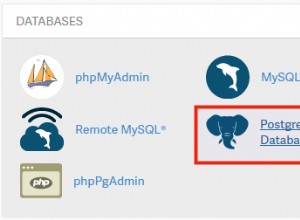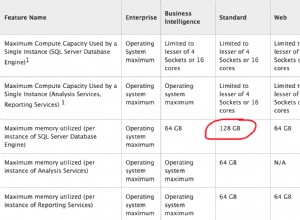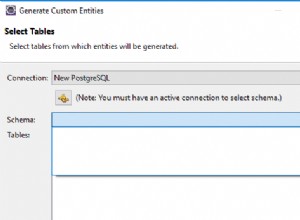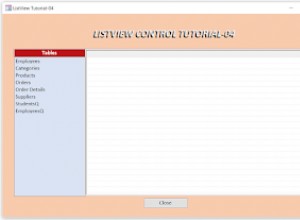Utilizzando un MIN come funzione analitica è possibile calcolare il frutto che dovrebbe essere considerato per un cliente.
Poiché l'ordine non è alfabetico, devi aiutare con un DECODE
Rest è un semplice raggruppamento con un MIN per la data di acquisto, ma considerando solo gli acquisti con frutta MIN.
with cust as (
select CUST_ID, PURCH_DATE, FRUIT,
decode(min(decode(FRUIT,'Apple',1,'Orange',2,'Banana',3)) over (partition by cust_id),
1,'Apple',2,'Orange',3,'Banana') as min_fruit
from tab)
select CUST_ID,min_fruit,
min(case when FRUIT = MIN_FRUIT then PURCH_DATE end) min_purch_date
from cust
group by CUST_ID,min_fruit
order by 1,2
Bellow è una soluzione alternativa senza utilizzare funzioni analitiche .
La prima sottoquery calcola il frutto minimo con un silpme group by utilizzando lo stesso DECODE log.
Devi unire la sottoquery alla tabella originale che è esattamente ciò che puoi salvare usando le funzioni analitiche.
with min_fruit as (
select CUST_ID,
decode(min(decode(FRUIT,'Apple',1,'Orange',2,'Banana',3)),
1,'Apple',2,'Orange',3,'Banana') as min_fruit
from tab
group by cust_id)
select cust.CUST_ID,min_fruit fruit,
min(case when FRUIT = MIN_FRUIT then PURCH_DATE end) min_purch_date
from tab cust
join min_fruit on cust.cust_id = min_fruit.cust_id
group by cust.CUST_ID,min_fruit
order by 1,2;
Con i tuoi dati campione questo ritorna
CUST_ID FRUIT MIN_PURCH_DATE
---------- ------ -------------------
10001 Apple 12.01.2019 00:00:00
10002 Apple 21.01.2019 00:00:00
10003 Apple 06.02.2019 00:00:00




